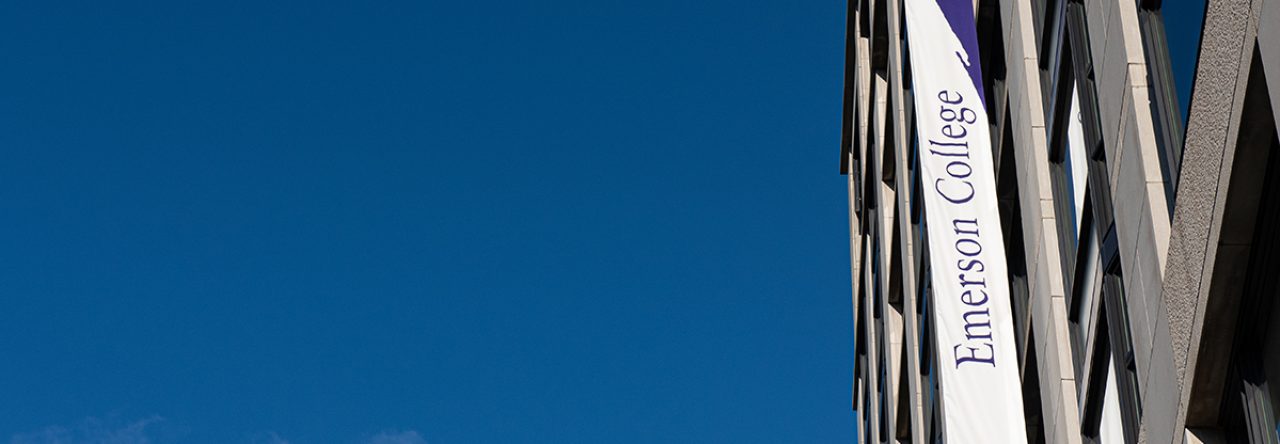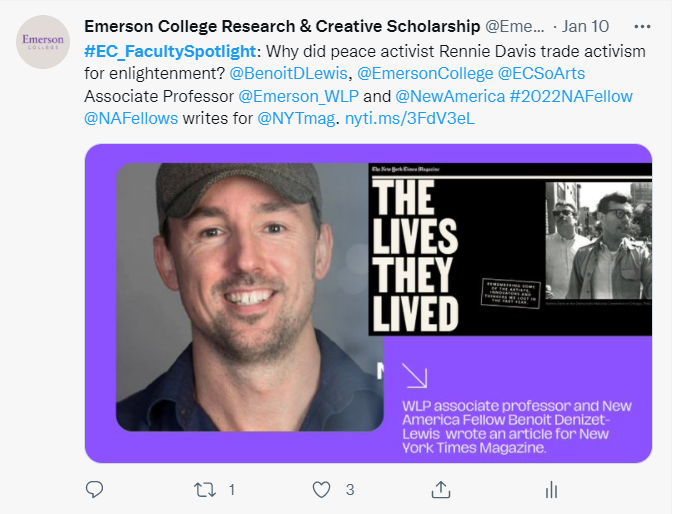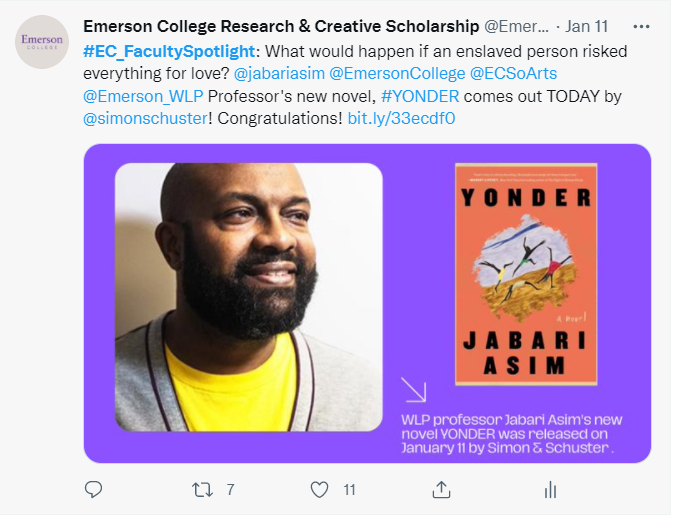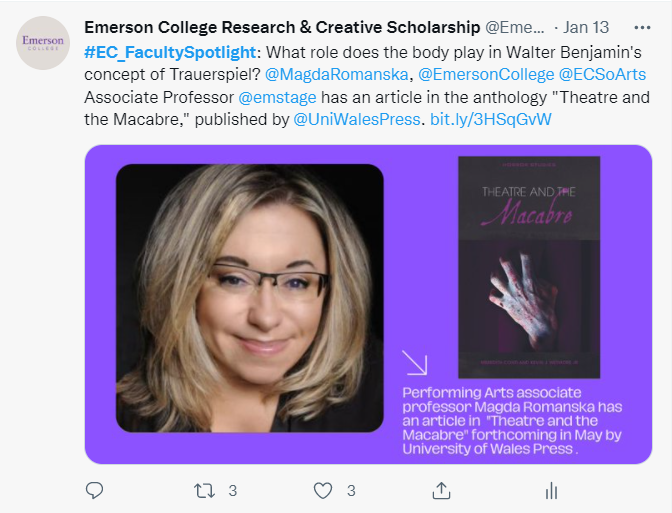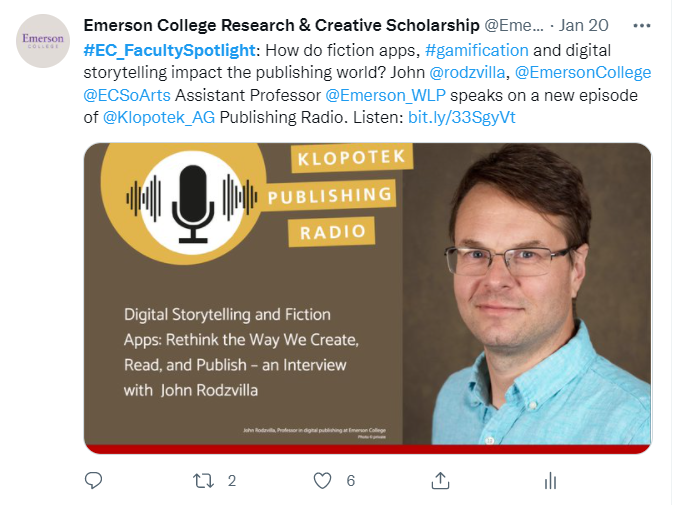
What: 3-day Workshop to Support Community Engaged Pedagogy
When: May 16 – 18 (10am to 4pm, lunch included)
Where: Engagement Lab (Boston Campus)
Compensation: $1,000 for faculty participation
Application Due: February 15
Info session: February 4, 10 ET on Zoom
Description
Learning can transform the lives of our students. And when we extend the college classroom beyond our students, not only can it enhance student learning, but it can transform the lives of those in the extended community of Boston.
Emerson is committed to cultivating a learning culture that extends beyond our campus. Facilitated by the Engagement Lab, the College is investing in “partnered studios,” which are semester-long courses taught in collaboration with an outside community, with explicit social impact goals.
The Engagement Lab is launching a new program to support faculty who’d like to work with partners, helping to document processes, identify and measure social impact, and amplify outcomes. We are also committed to supporting sustainable partnerships that are not solely the responsibility of an individual faculty member.
We are doing this primarily through multi-year initiatives. In December 2021, we launched the Transforming Narratives of Gun Violence Initiative (TNGVI) – a collaboration between MGH’s Center for Gun Violence Prevention, the Louis D. Brown Peace Institute, and the Engagement Lab. The initiative supports 3-4 studios each semester from a range of disciplines, and is engaging those most impacted by gun violence in Boston to collaboratively work with our students to create media, redefine systems, and advocate for policy changes.
In the fall of 2022, we are planning to launch a second initiative focused on Climate Justice in Boston. The effects of climate change will disproportionately impact communities of color in this city, and there is an urgent need to transform how narratives get told and who gets to tell them. Similarly, this initiative will stand up 3-4 studios each semester, coming from departments across the College, and be in partnership with climate justice organizations and impacted communities throughout the Boston area.
The Opportunity
To participate in these initiatives, or to gain support with existing partnerships, you are invited to a 3-day studio-design workshop this summer to create or refine your approach to community engaged pedagogy. We will explore the opportunities and challenges in these kinds of courses, identify and secure partnerships, define social impact goals, and design tailored support structures for each course. The workshop will take place May 16-18 from 10-4 each day. Lunch will be provided. And faculty will receive a $1,000 stipend for their participation.
To apply, please send a one-page statement to Eric Gordon (eric_gordon@emerson.edu) describing your interest in participating by February 15. An information session will be offered Friday, February 4 at 10am on Zoom. Feel free to reach out with any questions in the meantime.
